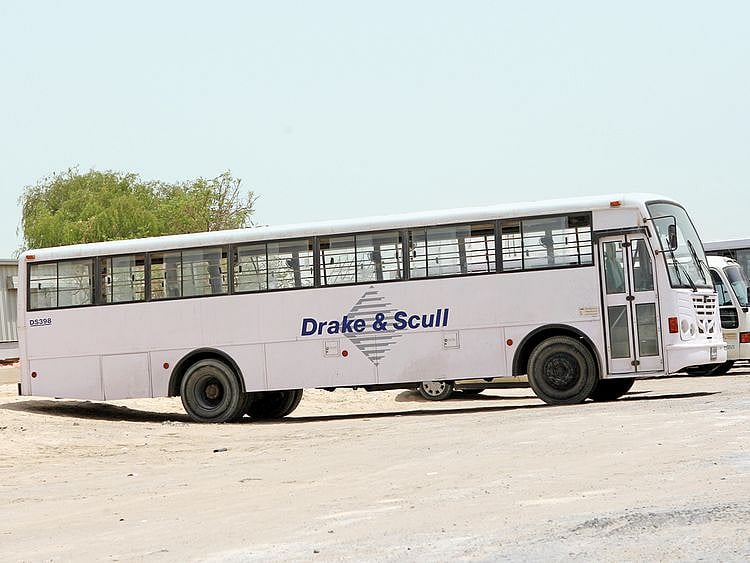Dubai: Drake and Scull’s (DSI) status as a ‘going concern’ is being questioned by auditors and analysts alike, and new capital seem to be distant.
The annual report, that was published on Thursday, showed that net losses jumped 4-fold to Dh5.09 billion, resulting in complete erosion of equity. The company now has a negative equity of Dh4.7 billion as of December 2018 as a result of an expanding net loss. There has been no material reduction in total liabilities from the previous year with the total pegged at Dh6.6 billion. Impairment of goodwill, an indicator of its brand equity, suddenly appeared in its annual report with a value placed at Dh800 million.
Ernst and Young, the new auditor which took over from PricewaterhouseCoopers (PwC), made stinging remarks in its 2018 annual report saying they were not given access to PwC’s working papers to review the opening balances in the statement of accounts.
“We were not provided with access to review predecessor auditor’s working papers relating to their audit of the group for the year ending December 2017 ... it was not possible for us to satisfy ourselves on opening balances as at December 2017,” EY said in its report. There were reconciliations between intragroup balances and differences about which no information was given to the auditors.
The company had a net loss of Dh5.09 billion and current liabilities of Dh4.7 billion and these conditions indicate that the existence of “material uncertainty which may cast doubt about the ability to continue as a going concern, therefore the group may not be able to realise is assets and discharge its liabilities in the normal course of business,” EY said.
“There is a clear issue with how the firm has been reporting its earnings and assets especially in terms of over-inflating certain items whether they were “bargains on purchase”, “receivables” or “Goodwill”. Another issue has been with failure to properly cooperate with auditors who have added notes in the audited reports regarding inability to confirm bank balances among other items,” Issam Kassabieh, Senior Financial Analyst — Research Department at Menacorp, told Gulf News.
In 2017, Tabarak Investments came in a strategic investor to attempt a turnaround, and reassured its commitment to ailing DSI.
“Tabarak’s decision to provide support to Drake & Scull, until completing the Sukuk that can be converted into shares, is a result of Tabarak’s confidence that the ongoing restructuring is on the right track,” Tabarak said in a statement in May 2018.
The lifeline is now fresh capital for the company, and that seems distant.
“The new investor would be cautious what he does here. The amount of capital that is needed is huge and there are legacy issues with this business. That would mean you throw good money at bad money. For bankers, the company has reached a point where they would have to take a substantial haircut on their exposure,” said an analyst with a fund manager who did not wish to be named.
Mohammed Ali Yasin, chief strategy officer at Al Dhabi Capital pointed out that misrepresentations were made in the accounts, and they should had been revealed during the time Tabarak Investments came in as a strategic investor in 2017.
“The problem here is two folds — one in terms of the impact on shareholders or investors. That needs to be handled properly because it is negative the way things are going. They are wondering is it the problem of the management, or the board or external auditors. Why weren’t these numbers made public when the strategic investor came in. These issues need to be handled because this impacts the stock market and the credibility of the stock market especially in the construction sector,” Mohammed Ali Yasin, chief strategy officer at Al Dhabi Capital told Gulf News.
DSI’s shares remain suspended from trading on the Dubai Financial Market. The DFM spokesman directed Gulf News to the capital markets regulator when asked for a reaction on the DSI crisis.
“What investors can do with the stock is totally up to the regulator and how it sees fit; however the firm is unlikely to be able to revoke a trading suspension as the company needs a massive cash influx which is unlikely to come in as this is not failure due to sector risk etc it is entirely or for the most part mismanagement without pointing any fingers,” Kassabieh said.
In all Yasin had a advice on such cases: “there should be accountability for this. Once people pay for it, then such acts would stop.”
Sign up for the Daily Briefing
Get the latest news and updates straight to your inbox
Network Links
GN StoreDownload our app
© Al Nisr Publishing LLC 2026. All rights reserved.
